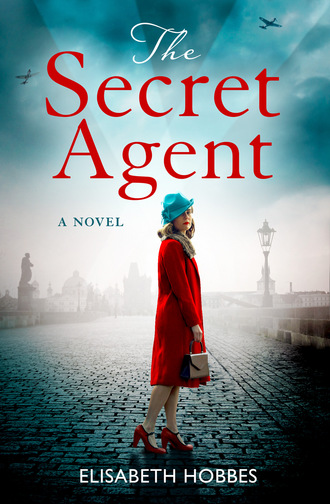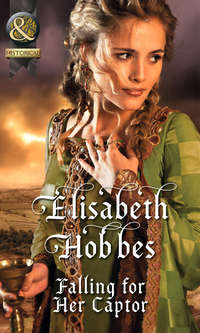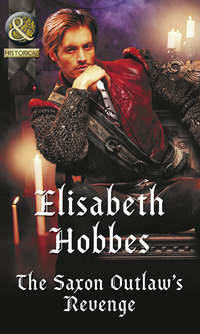
Полная версия
The Secret Agent
‘Perhaps it would be more accurate to say that I have never felt like England is my home.’
Uncle Max raised his eyebrows. He was not a real uncle, but he had served with Sylvie’s father in the trenches during the Great War. He might even have been nursed by Sylvie’s mother in the Normandy field hospital where Angelique Duchene and Arthur Crichton had met. Before the war Uncle Max had visited the house in Scarborough frequently, and once Sylvie was deemed old enough (and English enough) to join the adults, they lunched together. Uncle Max had always been kind to her, and she had a sense that she was being ungracious.
‘Not everyone made me feel like a stranger,’ she admitted, giving him a gentle smile to show she counted him in that number. Uncle Max acknowledged the compliment with a silent nod of the head.
‘I heard General De Gaulle speak on the radio in June 1940. He called on all French citizens to contact him and fight to free our country. I didn’t answer that call. I thought I had no skills. Now I know I do,’ Sylvie said.
‘If you had believed your skills were useful, would you have responded?’ Miss Atkins asked.
‘I…’ She straightened her posture. ‘Honestly, I’m not sure. I was younger. I was studying. I’m wasted in England when I speak French fluently and could be of use in France.’
‘No other reason?’ Uncle Max asked.
Running away from a failed relationship. Not wanting to live with a stepmother. Not very admirable reasons.
‘What would you answer if I asked you why you wanted to defend your homeland?’ she asked Uncle Max. ‘I detest what has happened to my country. I was born there. I wish I had never been forced to leave. Now my father is dead, there is nothing to keep me in England. If I can do anything in the slightest to hasten Hitler’s overthrow, I will not hesitate.’
The corner of Uncle Max’s eye twitched. Sylvie suspected he would rather be in France than stuck behind a desk, training agents to send to places he could not go himself. Sylvie stopped and brushed her hair back from her forehead. The outburst was out of character. She had worked so hard for years to conceal the emotions that her father had termed ‘un-English’, that to have them burst through was unsettling.
The two interviewers exchanged a glance.
‘You were right,’ Uncle Max murmured to Miss Atkins.
Sylvie bristled. Here she was, sat in the room alongside them, being referred to as if she was absent.
‘Please,’ she said, ‘tell me what exactly Miss Atkins was right about and I will confirm it myself.’
‘I told Major Swift that you notice people,’ Miss Atkins said. ‘You size them up.’
Her voice was low and soothing. Even though Sylvie knew on an intellectual level that she was being placated, the tone was motherly enough that it tugged a little at her heart. She thought she had got over the longing for a mother and the long-buried yearning to be nurtured and comforted took her by surprise.
‘I may as well observe,’ she said, shrugging in an offhand manner to disguise the unwanted emotions. ‘I’ve been excluded enough times, and it gives me something to do to pass the time.’
Miss Atkins scribbled something on the pad in front of her. ‘The role we have in mind for you would require a particular set of skills and attributes, Miss Crichton. One that you might be alone in possessing. You began training as a dancer before your father brought you to England, is that correct?’
Sylvie permitted herself a smile. She’d travelled with her mother, Angelique, from birth, and had begun her stage career aged thirteen when puberty had hit with a hard fist and reshaped her body so dramatically that she could easily pass for seventeen. Her developed figure and precocious manner had been a source of concern for Sylvie’s father and his English wife when they brought Sylvie to live with them after Angelique’s passing.
‘I didn’t exactly train,’ she admitted. ‘Not with a teacher, but I was dancing from almost as early as I could walk. I danced in the chorus of the show with my mother before her death. It was all I wanted to do. Father let me take ballet lessons when I came to England. What do you have in mind for me?’ she asked. ‘I hardly imagine you are planning to install me in the Paris Opera House, are you?’
‘I’m afraid our reach does not extend that far,’ Uncle Max said.
He chuckled in what seemed to Sylvie to be a rather patronising manner. She tried not to bristle openly, knowing that Uncle Max would have a great degree of influence over when, where, and if at all she was used as an agent.
‘I’d be happy to demonstrate my credentials. Would you like me to audition for you?’
She sat back and waited for Uncle Max to elaborate.
‘We won’t ask you to demonstrate your proficiency on the stage – we’ve already observed the way you move. The question is whether you think it would be possible for you to take instruction from a choreographer in French?’
Sylvie permitted herself to laugh out loud at this.
‘Uncle Max,’ she said. ‘Any ballerina in England is able to take direction in French. From pliés to jetés, the language of dance is in French.’
‘In that case, I see no issue with assigning you on that basis,’ Max said. ‘There is a nightclub in a particular city – never mind the name at this point. You will find out if it becomes necessary for you to learn it. This club has lost a number of dancers and our network operator in the city has told us they are currently looking for a young woman who is capable of performing. The proprietor is a loyal supporter of our campaigns. If you were to work there, it would raise no questions.’
‘A club,’ Sylvie remarked. Not a theatre or ballet troupe. Her mind filled with music and she could almost feel the heat of spotlights, smell the cigarette smoke and liquor on the clientele’s breath. A dozen different perfumes mingling together. Sultry female voices crooning songs of love and deceit in her ears. Dieu, how she missed it. How she missed her mother and the smell of powder and paints. The longing and homesickness were almost physical in their intensity.
‘Are you all right, Miss Crichton? I think we lost you for a moment,’ Miss Atkins asked.
Sylvie shook herself out of the reverie and smiled widely at them both.
‘I’ll do it. I want to go home. See France again, even if it will be the last time. No one knows what the outcome of the war will be. Whatever is necessary, there is no one better positioned than me.’
‘Whatever is necessary,’ Max mused. He exchanged a glance with Miss Atkins. ‘Whatever it takes might be another matter completely.’

Somewhere over France
The interrogation and interview played themselves over and over like a Pathé showreel in Sylvie’s head. It served as a useful distraction against the upcoming events of the next quarter of an hour.
What was about to happen was landing in occupied France on a (hopefully – unless they were shot down) unwatched field, to be met (hopefully – unless they had been discovered and arrested) by agents working for the local network who would assist Sylvie in beginning her onward journey to Nantes and the Librarian network Sylvie would become a part of. So many uncertainties.
The message had been sent out over the BBC radio broadcast earlier that day: ‘An umbrella and a parasol are for sale in Rue Candide.’ The code that one male and one female agent were to be arriving inland near Bordeaux. Being referred to as a parasol made Sylvie want to giggle, the image was so absurd. The man who sat alongside Sylvie didn’t look much like an umbrella for that matter.
It was a balmy evening, and the moon was full as the Lockheed Hudson flew across the Bay of Biscay, though a bank of low clouds gathering ahead threatened to make landing tricky. The drops were always made on the nights of a full moon to enable pilots to fly low without lights. Shadows illuminating the faces of passengers and crew made for an unsettling experience.
‘At least the cover will help mask us from German searchlights,’ the pilot reassured Sylvie and her travelling companion. ‘I’ve made this drop twice now, and aside from a couple of tricky streams running across the fields, it makes for a perfect landing strip.’
‘At least we’re not jumping.’ The man beside Sylvie gave her a patronising smile. ‘Wouldn’t want to be ruffling your hair now, would you?’
Sylvie rolled her eyes. ‘At least that is a problem I have to consider,’ she replied sweetly and a little unfairly. The agent was reasonably young – no more than thirty – but had a very receding hairline. His cheeks reddened and his fingers twitched as if he was about to check his thinning locks were still there. Sylvie hid a smile.
‘Why aren’t we jumping?’ Sylvie asked the navigator. ‘I was told that was the original plan.’
‘We need to make a collection,’ he replied. He jerked his thumb at a consignment of wooden crates held in place with a cargo net. ‘Saves having to send those down on ’chutes as well.’
Sylvie nodded. She had hated parachute training, which had taken place at an airbase outside Manchester, and was relieved that she was unlikely to risk twisting an ankle or worse. Her mission would be over before it started if she was unable to dance.
‘The coast is coming up now,’ the pilot said.
Sylvie peered through the window, cupping her hands around her eyes to try to get a better look at the long, straight coastline with the unending dunes. Of course, there was barely anything visible. The plane had taken a circular route, arriving from an unconventional direction, to avoid the German gun turrets that defended the coast against Allied attacks.
Home. Sylvie swallowed down the emotions that filled her belly.
The pilot banked the plane sharply.
‘Are you all ready?’ he asked. ‘I need you off as soon as we land and reload. A reception committee should be waiting for you. No red carpets or china tea, I’m afraid.’
The man grunted and Sylvie laughed dutifully.
‘We want to be gone within ten minutes. We have to unload and collect a return passenger.’
‘Who is it?’ Sylvie asked.
‘We don’t get told details. We just arrive, drop and pick up,’ the engineer said. ‘Waste of a good plane, if you ask me.’
The pilot nodded in agreement. ‘This girl has better things to do with her time.’
Sylvie detected a note of hostility. She’d been warned about that. The use of planes had been restricted since the RAF protested that landing in France was putting their men at risk and a waste of fighting machines.
‘We’ll be quick,’ Sylvie said.
‘Quicker than you can get your knickers up and down,’ the balding man joked.
Sylvie eyed him coldly. ‘Which is still not as quick as you could do the deed.’
She smiled to imply it was meant to be a joke, causing the pilot to snigger. The bald man began to fuss with his shoe. Sylvie sat back, wondering if she had been foolish to rise to his jibes. She had no idea where he would be going once they landed, and as far as she knew, they may have to work together.
The plane was met almost as soon as the wheels down. The seemingly empty field came alive as shadows rose out of the surrounding forest. Three separate groups of men appeared. They were obviously well practised. The first began unloading the crates from the plane. The second group ushered Sylvie and her companion away quickly through the damp undergrowth and into the safety of tree cover. She had a brief moment to look behind and spot the third group helping a limping figure onto the steps of the plane.
Sylvie had been briefed on what would happen next, but it still happened in a rush, her head whirling. She and the other agent were hurried through the forest on foot. It was hard to move quickly through the tangle of roots and bushes that clutched at them while holding their bags. Before long, Sylvie was hot and breathless. From the direction they had left, the distant sound of gunfire punctured the night. Sylvie’s instinct was to freeze and huddle down in the undergrowth, but one of her guides urged her on.
‘Not our affair. Keep going.’
When they eventually reached a rutted track they were ushered onto a flatbed truck and nestled among various pieces of what Sylvie thought might be farm machinery. By the time the German sirens were screaming through the night, a tarpaulin had been placed over the top and they were making a jolting journey from the landing site into occupied France.
Chapter Three
Rural France
After, perhaps, half an hour, the truck jerked to a stop, and the tarpaulin was removed. Sylvie and her companion were ushered into a farmhouse and taken through the kitchen, straight into an upstairs bedroom. The room smelt of cigarettes and sweat. The scent was markedly different to English tobacco, the pungent, thick aroma reminding Sylvie of her childhood.
They were motioned up a wooden ladder into a cramped attic, where two agents were waiting for them. A man in his late thirties and a woman who was closer to fifty in Sylvie’s estimation.
‘Welcome to France,’ said the man in French. ‘I am Hugo. This is Marianne.’
Not their real names, or even the ones that would appear on their identification papers. These would be field names designed to protect them when they were carrying out missions that involved meeting other people. Sylvie’s was Monique. It was confusing but gave her confidence knowing how much care was taken to protect the agents and résistants from accidental discovery or intentional betrayal. Hugo spoke with a slight inflection to his vowels; Sylvie marked him down as not being a native speaker. A genuine French accent was one of the advantages she had over British agents who might be fluent but who had not grown up speaking French as a first language.
‘You’ll spend the night here and leave at first light,’ Hugo continued. ‘Marianne has instructions for each of you. Memorise them. It would be safer if you do not share the contents with each other. You know the names of your final destination and contacts, of course.’
‘We do.’ Sylvie nodded. Librarian’s chief went by the name Marcel. She would finish in Nantes but knew nothing beyond beginning the next morning with a walk across the countryside to the nearest small village. At each stage, she would give the same greeting to the courier and introduce herself by the name of Monique. The courier would take her onwards.
‘We will bring you food,’ Marianne said as she handed over two envelopes. She really was French. There was something in more than her accent that distinguished her, and Sylvie felt a momentary twinge of anxiety that she had been in England too long and would not pass as a native of her own country. She studied Marianne with interest, taking note of her hairstyle and planning to fix hers into similar chestnut waves before she had to appear in public.
The farmer’s wife brought a tray of bread and cheese and, even more welcome, a jug of weak cider. Sylvie and the other man devoured the food while Marianne filled four earthenware cups that she passed around.
‘To your success and safety,’ Hugo said. They all raised their cups and toasted each other.
‘You should get some sleep now. You leave before dawn,’ Hugo said.
Marianne took Sylvie’s hand. ‘Monique, I thought you would prefer to sleep with the farmer’s children.’
Sylvie nodded. She shook hands with her fellow traveller. ‘Good luck.’
‘And the same to you, mademoiselle.’
She followed Marianne down the ladder and into a small bedroom. A mattress had been laid between two cots that each bulged with a small body. The largest bundle made a snuffling sound and shifted as the child roused and settled almost instantaneously. A scratched leather suitcase, patched up with parcel tape, stood at the end of the bed. It contained Sylvie’s new clothes and her identity papers. Sylvie had acquired a very good suitcase recently, but she had to leave it safely stored in London because it had the name of the English company engraved on the lock plate, so would immediately reveal her as a foreigner. She put her snakeskin leather bag beside it. That was French and had been a gift from her father and her stepmother, Maud, on Sylvie’s twenty-first birthday. It was the most fashionable thing she owned and also the most useful, being large enough to carry a great deal more than the type of dainty little clutch bag that had been in fashion before the war.
‘There’s a biscuit tin in the bottom of the case wrapped in your slip,’ Marianne whispered. ‘When you get to Angoulême, tell the charcutier to give it to Jean-Pierre. He’ll know who you mean.’
Sylvie nodded. Marianne leaned forward and kissed her cheek, then hurried away. Sylvie settled down on the mattress, not bothering to undress. None of it felt real. She wondered what was in the biscuit tin, then decided she would rather not know. Better to be able to deny knowledge if she was caught and questioned.
If she was caught…
She shivered and pulled the crocheted blanket over her head. That didn’t bear thinking about. She reached for the gold cross on the chain around her neck and felt reassured. She did not put her faith in the God whose symbol she wore, but rather in the ruby-coloured paste gem in the centre. Concealed within was a small pea-sized ampoule filled with cyanide. If she was arrested by the Gestapo, it would most likely mean her death one way or another, but poison would ensure a quicker end. As she closed her eyes, she fervently hoped it would not come to that.

Looking back, Sylvie would remember the early-morning hike across the fields to the village as a time of serenity and peace before the consequences of war in France sunk in. The sun quickly burned away the dawn mist, and the air smelt of wheat and wildflowers. Aside from one alarming encounter with a bad-tempered nanny goat, Sylvie reached the village without incident. The goat had been standing on her rear legs, chewing at the low-hanging leaves of a tree, and had taken exception at having her breakfast interrupted by a walker. She let out a bleat that would have rivalled an air-raid siren and lunged towards Sylvie, teeth bared. Sylvie scurried past before the sound drew every German patrol from miles around, clutching her bag and suitcase high, thinking she’d happily face the Gestapo a dozen times than that mad-eyed creature!
She walked into the village and encountered the first evidence that she was in a country under occupation. The village, like so many in France, was centred around a small square with a small-windowed church and a town hall. The church doors were closed and instead of a Tricolore, a swastika hung in front of the mairie. Sylvie stared at the flag. It was the first time she had seen one in the flesh, and the red, black and white seemed disturbingly normal in the sunshine. A handful of old women were milling around the square, waiting to buy bread. They looked Sylvie up and down with suspicion, and she shivered. She had no idea how great the German presence was in this prefecture, or what the attitude to the occupiers might be. These women could go to the grave denying having seen a stranger or could rush straight to inform the authorities.
She hurried on to the address she had been given and took possession of a bicycle that had seen better days. She began her long and arduous bicycle ride to Angoulême, glad to leave the silent village behind, but full of foreboding at what she might yet encounter.
Things were even more shocking there. The next town had been devastated by Allied bombing a fortnight before, and streets of houses had been reduced to rubble. Small children of both sexes climbed through window frames devoid of glass, throwing fragments of brick at each other while adults wearily passed by. She edged her way through the streets, taking in the pock-marked walls where bullets had lodged or chipped away the stone.
She stared in dismal resignation at the swastika flags hanging proudly outside the town hall. Pedestrians walked purposefully, avoiding eye contact. Though hair of all shades passed by, every face was a hue of white. No one Jewish. No one black or olive-skinned. This was not the France she had longed to return to, where the theatre had buzzed with people of all colours and nationalities. Not the country she had missed with such heartfelt misery from across the English Channel for almost a decade.
She took a deep breath, remembering the way she had argued her case with Uncle Max and Miss Atkins to be sent to France, and counted to ten as she let it out slowly. These sights made her all the more determined to succeed in her mission.
The charcutier who introduced himself as Claude explained the safe house where Sylvie spent the night had narrowly escaped being destroyed. He took the biscuit tin without question and poured Sylvie a small cup of something fiery. They toasted their mutual good luck before he showed Sylvie to a small guest room.
‘Unless you’d rather share with me?’ he asked hopefully.
He wasn’t bad-looking, and the promise of sex on her terms with absolutely no repercussions was almost tempting, however, Sylvie declined with a smile.
‘Bad timing, I’m afraid,’ she lied, patting her lower belly.
Claude left her to sleep, seemingly bearing no grudge at his rejection.
From Angoulême the next morning, a softly spoken elderly man who introduced himself as Papi drove her all the way to the outskirts of Cholet in a Peugeot baker’s van. Sylvie sat beside him and learned of his youngest daughter who had died in an airstrike on Paris and his wife who had died in the bombing of the city two weeks previously. He brushed off condolences but gripped Sylvie’s hand tightly.
‘I am too old to fight, so I play my part how I can,’ he said. ‘I will take you to my daughter. She will look after you.’
He delivered Sylvie to a café in a small square. The sign pronounced the café was closed. Papi knocked and when the door opened a crack, he was greeted by a grey-haired, handsome woman who pulled Sylvie and Papi inside and was introduced as Eloise. They had no sooner sat down at the table when a young man banged on the window. He gave a signal that meant nothing to Sylvie, but Eloise and Papi sprang into action.
‘You have to hide! Quick!’ Eloise dragged the table out of the way, kicked the rug free and pulled open a trapdoor. ‘Down there.’
Sylvie had been trained to obey orders. Without question, she lowered herself into the hole. Papi passed her luggage down.
‘Stay silent.’
The space was not big enough to stand up in. Sylvie crouched in blackness, clutching her knees, and listened to the sounds from above. There was a dull flopping sound, then the dragging of wood as Papi and Eloise returned the furniture to its rightful place, then creaking as they sat down.
Sylvie waited, hoping desperately her mission was not at an end before she had even reached her destination. Sylvie had never suffered from claustrophobia, but the air was too hot and thick to breathe comfortably. She tried not to think of coffins. Of her father last August, lying in his. Of her mother, eleven years previously, so delicate against the cushions. Dying in France and being buried on the same soil as Angelique would be some comfort, but not much.
The sound was muffled by the rug and thick floorboards, but when the soldiers came, the noise reached Sylvie’s ears. Hammering on a door. Male voices followed by female pleading. Different male voices, then weeping, begging. More shouting and then the piercing sound of glass breaking. She huddled into a smaller ball, clutching the cross with her suicide pill and waiting for the burst of light and discovery.







